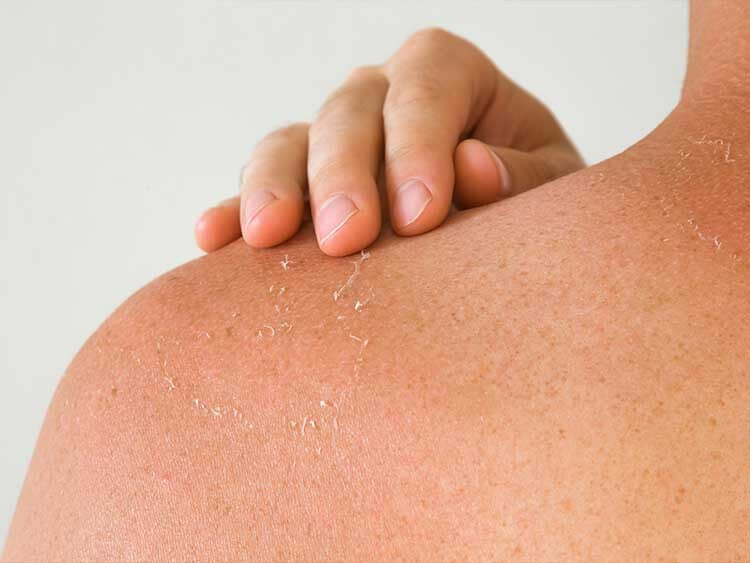The concept of a multi-step skincare routine has gained popularity in recent years, owing to the belief that more steps equal better results. However, dermatologists frequently emphasize that skincare does not have to be complicated to be effective. Let us debunk the 10-step routine myth and look at a simpler approach to skincare, as suggested by dermatologists in this blog.
Core Principles of an Effective Skincare Routine
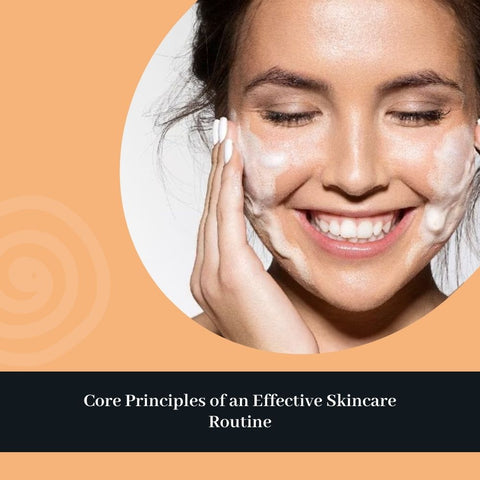
An effective skincare routine is based on fundamental principles that promote skin health, address specific issues, and keep the complexion balanced and radiant. An effective skincare routine includes cleansing, moisturizing, sun protection, exfoliation, targeted treatments, eye care, hydration, healthy lifestyle habits, consistency, and adaptability. By following these core principles and tailoring your skincare routine to your skin's specific needs, you can achieve healthy, glowing skin that looks and feels its best.
Cleansing: The Foundation of Healthy Skin
Cleansing forms the cornerstone of any effective skincare routine, laying the groundwork for healthy, radiant skin. Here's why cleansing is essential and how it contributes to overall skin health:
-
Throughout the day, our skin accumulates dirt, oil, sweat, pollutants, and dead skin cells, which can clog pores and lead to breakouts, dullness, and uneven texture. Cleansing helps to remove these impurities, leaving the skin clean and refreshed.
-
By eliminating excess oil, bacteria, and debris from the skin's surface, cleansing helps to prevent breakouts and acne. Regular cleansing can reduce the risk of clogged pores, whiteheads, blackheads, and inflammatory acne lesions.
-
The skin's natural barrier, made up of lipids and proteins, protects against moisture loss, environmental aggressors, and irritants. Gentle cleansing keeps the skin barrier intact, preserving its protective function while preventing dryness and sensitivity.
-
Cleansing encourages cell turnover by removing dead skin cells from the skin's surface. This promotes the emergence of fresh, healthy skin cells, resulting in a smoother, brighter complexion and improved skin texture.
-
Cleansing prepares the skin to better absorb subsequent skincare products, such as serums, moisturizers, and treatments. Clean skin allows active ingredients to penetrate more effectively, maximizing their efficacy and delivering optimal results.
-
Throughout the day, the skin is exposed to environmental pollutants, UV radiation, and free radicals, which can accelerate aging and damage the skin. Regular cleansing helps to remove these environmental toxins, minimizing their impact on the skin and preserving its youthful appearance.
-
Cleansing not only cleanses the skin, but it also refreshes and revitalizes the complexion. It can invigorate the senses, awaken the skin, prepare you for the day ahead, or promote relaxation and renewal at the end of the day.
Moisturizing: Locking in Hydration for All Skin Types
Moisturizing is an essential step in skincare because it helps maintain skin hydration, nourishment, and barrier function for all skin types. Here's why moisturizing is important and how it benefits different skin types, including hydration balance, barrier protection, dryness prevention, oil control, sensitivity relief, anti-aging benefits, and easier makeup application. To reap the most benefits from moisturizing, select a moisturizer that is tailored to your skin type, concerns, and preferences. Apply moisturizer to cleansed, toned skin in the morning and evening, gently massaging it into the face, neck, and décolletage in upward, circular motions. Consistent moisturization helps to keep skin hydrated, balanced, and resilient, promoting a healthy, radiant complexion for all skin types.
Sun Protection: The Ultimate Anti-Aging Secret
Sun protection is not only essential for avoiding sunburns and skin cancer, but it is also the ultimate anti-aging secret for keeping your skin looking young and healthy. Here's why sun protection is critical for anti-aging results:
-
Exposure to ultraviolet (UV) radiation from the sun is a major cause of premature aging, known as photoaging. UV rays penetrate the skin and cause collagen and elastin breakdown, resulting in fine lines and wrinkles, sagging, and a loss of skin firmness and elasticity. Sun protection protects the skin from UV rays, reducing the signs of aging and maintaining a youthful appearance.
-
Sun exposure can trigger the overproduction of melanin, resulting in hyperpigmentation, dark spots, and uneven skin tone. Sun protection helps prevent the worsening of existing hyperpigmentation and reduces the risk of new discoloration, promoting a more even, radiant skin tone over time.
-
Sunburn is not only painful and uncomfortable, but it also indicates skin damage and an increased risk of skin cancer. Sun protection, particularly broad-spectrum sunscreen, blocks the UVB rays that cause sunburns, preventing acute skin damage and long-term consequences.
-
Prolonged sun exposure is the leading cause of skin cancer, including basal cell carcinoma, squamous cell carcinoma, and melanoma. Sun protection, such as sunscreen with SPF 30 or higher, lowers the risk of skin cancer by blocking harmful UV rays and preventing DNA damage to skin cells.
-
UV radiation accelerates the breakdown of collagen and elastin fibres in the skin, which are essential proteins responsible for skin structure, firmness, and resilience. Sun protection helps to preserve collagen and elastin integrity, slowing the aging process and maintaining skin elasticity for a smoother, more youthful complexion.
-
Actinic keratoses are rough, scaly patches on the skin caused by long-term sun exposure and are considered precancerous lesions. Sun protection lowers the risk of developing actinic keratoses, thereby protecting the skin's health and structure.
-
Sun protection helps to delay the onset and progression of aging signs such as wrinkles, fine lines, age spots, and skin laxity by shielding the skin from UV damage. Consistent use of sunscreen and sun-protective measures keeps the skin youthful, resulting in a more radiant, healthy-looking complexion over time.
Tailoring Your Skincare: Less Can Be More
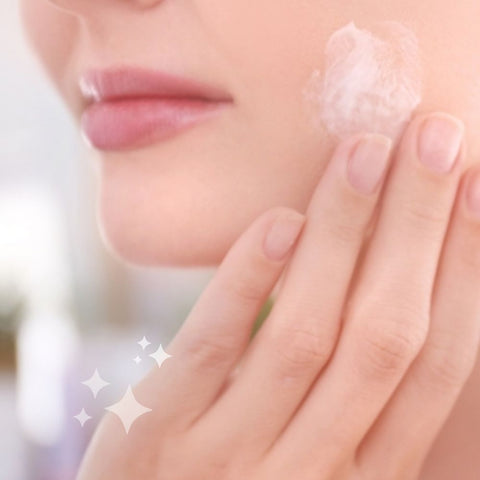
When it comes to skincare, sometimes less is more. Rather than overwhelming your skin with a slew of products, a simplified, tailored approach can frequently produce better results. Here's why less is more in skincare:
-
Minimalist Approach: Simplifying your skincare routine entails reducing it to the essentials and focusing on key products that address specific skin concerns. By removing unnecessary steps and products, you reduce the possibility of overloading your skin and causing irritation or sensitization.
-
Prevents Product Overload: Using too many skincare products, particularly those containing active ingredients or harsh chemicals, can overwhelm and disrupt the skin's natural balance. Simplifying your routine reduces the risk of product overload, allowing your skin to function properly while maintaining its health and integrity.
-
Customized Solutions: By tailoring your skincare routine to your unique needs, you can select products that address your specific concerns and goals. Rather than taking a one-size-fits-all approach, you can choose specific treatments and formulations that are best suited to your skin type, concerns, and preferences.
-
Streamlined Application: A simplified skincare routine saves time and effort, making it easier to maintain a consistent routine. With fewer steps and products to worry about, you can simplify your daily routine and prioritize quality over quantity, resulting in a more enjoyable and sustainable skincare experience.
-
Reduced Sensitivity: Using fewer products lowers the risk of skin reactions, irritation, and sensitization, particularly for those with sensitive or reactive skin. By limiting your skin's exposure to potential irritants and allergens, you can help maintain its barrier function and reduce the risk of adverse reactions.
-
Cost-effective: Investing in a few high-quality skincare essentials that are tailored to your specific needs can be less expensive than purchasing a large number of products with similar benefits. Prioritizing efficacy and value over quantity allows you to achieve better results while reducing waste and unnecessary expenditure.
Identifying Your Skin’s Needs: Simplifying Your Routine
Understanding your skin's needs is the first step towards simplifying your skincare regimen. By focusing on your skin's specific concerns and priorities, you can simplify your routine and achieve better results with fewer products. Here are some tips to identify your skin's needs and simplify your skincare routine: assess your skin type, identify primary concerns, simplify your routine, choose multi-functional products, prioritize key ingredients, listen to your skin, customize your routine, and be consistent. Simplifying your skincare routine and focusing on your skin's specific needs will result in healthier, more radiant skin with fewer products and less effort.
The Power of Active Ingredients: When Targeted Treatments Outweigh Quantity
In skincare, the potency and efficacy of active ingredients can greatly influence the outcome. The power of active ingredients stems from their ability to deliver precise, visible results. Prioritizing quality over quantity and incorporating potent actives into your skincare routine will result in healthier, more radiant skin with fewer products and less complexity.
Nighttime Necessities: Prioritizing Restorative Care
Nighttime is an ideal time for your skin to undergo restorative processes, so prioritize specific skincare steps and ingredients in your evening routine. Here's why nighttime care is so important, and how to prioritize restorative treatments like cellular renewal, increased absorption, hydration and moisture, anti-aging benefits, and repair and recovery.
Beyond Products: Holistic Approaches to Skin Health
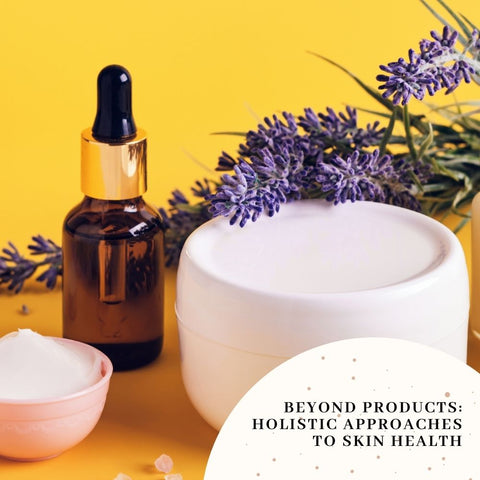
While skincare products are important for maintaining skin health, taking a holistic approach that includes lifestyle factors, nutrition, and self-care practices can improve your skin's overall health. Beyond skincare products, there are several holistic strategies to promote skin health, including a healthy diet, hydration, regular exercise, stress management, adequate sleep, sun protection, gentle skincare practices, limiting toxins and irritants, regular check-ups, and self-care practices. By taking a holistic approach to skin health that includes lifestyle factors, nutrition, and self-care practices, you can improve your skin's overall health and achieve a healthy, radiant complexion from the inside out.
Diet and Exercise: Their Role in Skin Vitality
Diet and exercise are important factors in improving skin vitality and overall health. A nutrient-dense diet, regular exercise, stress management, and sun protection are all important factors in promoting skin vitality and overall health. By nourishing your body from the inside out and living a healthy lifestyle, you can achieve a radiant complexion and keep your skin looking youthful for years.
Stress Management: Understanding Its Impact on Your Complexion
Stress management is critical for maintaining skin health because stress can have a significant impact on your complexion in a variety of ways:
-
Increased Inflammation: Chronic stress causes the release of cortisol, a stress hormone that can cause inflammation throughout the body and on the skin. Inflammation can aggravate skin conditions like acne, eczema, psoriasis, and rosacea, causing redness, swelling, and irritation.
-
Accelerated Aging: Prolonged stress can accelerate the aging process by promoting the breakdown of collagen and elastin fibers in the skin. Collagen and elastin are essential proteins that give the skin structure and elasticity. When these fibers degrade, the skin becomes more prone to wrinkles, fine lines, sagging, and loss of firmness.
-
Impaired Barrier Function: Stress can impair the skin's natural barrier function, which acts as a shield against environmental aggressors, moisture loss, and irritations. A weakened skin barrier can cause increased sensitivity, dryness, and vulnerability to external stressors, resulting in skin discomfort and dysfunction.
-
Modified Skin Microbiome: Stress can throw off the skin microbiome's delicate balance of good bacteria, resulting in dysbiosis and an overabundance of bad bacteria. Skin health and appearance can be negatively impacted by imbalances in the skin microbiome, which can lead to skin conditions like eczema, acne, and fungal infections.
-
Impaired Wound Healing: Prolonged stress slows down the skin's ability to produce new skin cells and delays the inflammatory response, which can make wounds and injuries harder for the skin to heal. This may increase the chance of infection and scarring by delaying the healing process after cuts, scrapes, and other skin injuries.
-
Increased Skin Sensitivity: Stress can increase the reactivity and sensitivity of the skin, increasing the likelihood of allergic reactions, irritation, and redness. Individuals with sensitive skin may experience exacerbated symptoms during times of stress, leading to discomfort and exacerbation of existing skin conditions.
The Importance of Sleep: Beauty Rest as a Skin Care Staple
Sleep is referred to as "beauty rest" for good reason: it is essential for skin health and overall well-being. Here's why putting quality sleep first is critical for maintaining a radiant complexion:
-
During sleep, the body enters repair mode, and the skin regenerates. Skin cells turn over quickly at night, replacing damaged cells with new, healthy ones. Adequate sleep promotes optimal skin repair, resulting in a smooth, youthful complexion.
-
Sleep is required for collagen synthesis, the protein that maintains skin structure, firmness, and elasticity. Collagen production increases during sleep, particularly during the deep, restorative stages of sleep. By getting enough sleep, you support collagen production, helping to reduce the appearance of wrinkles and fine lines.
-
Sleep deprivation can cause the body's inflammation levels to rise, resulting in redness, swelling, and skin irritation. Chronic inflammation can exacerbate skin conditions like acne, eczema, and psoriasis, so it is critical to prioritize quality sleep to keep inflammation under control.
-
Adequate sleep helps to reduce the appearance of dark circles and under-eye puffiness. During sleep, fluids accumulated in the face during the day are redistributed, reducing fluid retention and swelling around the eyes. This results in a refreshed, rejuvenated appearance upon waking.
-
Sleep is essential for maintaining the skin barrier, which protects against environmental stressors, pollutants, and moisture loss. A well-rested body is better able to repair and strengthen the skin barrier, producing smoother, more resilient skin.
-
Good sleep helps regulate stress hormones like cortisol, which can have an impact on skin health when levels are chronically high. By getting enough restorative sleep, you can lower stress levels, promoting a calmer, more balanced state of mind and healthier-looking skin.
The 10-Step Misconception: Why More Isn't Always Better
The 10-step skincare routine has grown in popularity recently, with supporters advocating for a comprehensive regimen to achieve optimal skin health. When it comes to skincare, though, more does not always mean better. Here's why the 10-step misconception might not be appropriate for everyone:
-
Risk of Overloading the Skin: Using multiple products can overwhelm the skin and disrupt its natural balance. Excessive use of skincare products, particularly those with active ingredients, can cause irritation, sensitivity, and breakouts, especially in people with sensitive or reactive skin.
-
Product Interactions: Using too many active ingredients or incompatible formulations can result in adverse reactions or reduced efficacy. Certain ingredients may cancel or counteract each other's benefits, reducing the overall efficacy of the skincare regimen.
-
Time-consuming and costly: Following a 10-step skincare routine can be time-consuming and expensive, necessitating a significant time and financial investment. Maintaining an extensive regimen may not be sustainable or practical for everyone, resulting in inconsistency and frustration.
-
Diminished Results: Using multiple products at once may dilute the potency of active ingredients, reducing their effectiveness. Instead of achieving optimal results, layering too many products can lead to reduced benefits and slower progress toward skincare goals.
-
Sensitivity: Excessive exfoliation, cleansing, or treatment application can deplete the skin's natural oils and disrupt its protective barrier. This can expose the skin to irritation, dehydration, and increased sensitivity, exacerbating preexisting skincare issues.
-
Difficulty Identifying Problematic Products: With a complex skincare routine, it can be difficult to determine which products are causing negative reactions or exacerbating skin problems. Simplifying the routine makes it easier to identify problematic products and make necessary adjustments.
-
Environmental Impact: Using a variety of skincare products can result in increased packaging waste, which contributes to environmental pollution and landfill accumulation. Choosing a minimalist approach reduces waste and promotes sustainability in skincare practices.
-
Individual Variability: Skincare requirements differ from person to person, depending on factors such as skin type, concerns, lifestyle, and environmental conditions. What works for one person may not be appropriate or effective for another. Customizing a skincare routine to meet specific needs is preferable to taking a one-size-fits-all approach.
Natural vs. Clinical: Finding the Right Balance for Your Skin
The debate over natural and clinical skincare has raged, with each side claiming their approach is superior. However, striking the right balance between natural and clinical products is essential for achieving optimal skin health. Here's how to navigate the natural vs. clinical skincare debate and develop a balanced skincare routine:
-
Natural skincare products contain ingredients derived from plants, minerals, and other naturally occurring sources. These products frequently prioritize botanical extracts, essential oils, and organic ingredients over synthetic chemicals, fragrances, and preservatives. Natural skincare is preferred by those seeking clean, eco-friendly formulations with minimal environmental impact.
-
Clinical skincare, also known as cosmeceuticals, contains active ingredients that have been validated by scientific research and clinical trials. These products frequently contain higher concentrations of potent ingredients like retinoids, alpha hydroxy acids (AHAs), peptides, and antioxidants, which address specific skincare concerns like aging, acne, hyperpigmentation, and inflammation. Clinical skincare is preferred by those seeking visible results and evidence-based solutions to complex skincare problems.
-
Understanding your skin's individual needs, concerns, and preferences is essential for striking the right balance between natural and clinical skincare. Choose skincare products based on your skin type, sensitivity, age, lifestyle, and environmental influences. Determine which ingredients and formulations are compatible with your skin and your skincare goals.
-
Rather than sticking to a single type of skincare, consider tailoring your routine to include a mix of natural and clinical products that work well together. For example, use gentle, natural cleansers and moisturizers to nourish and soothe the skin, while incorporating clinical treatments and serums to address specific concerns or achieve desired results.
-
While natural skincare products have advantages such as gentleness and sustainability, clinical skincare products may provide more immediate and visible results due to their higher potency and targeted formulations. Strike a balance between efficacy and safety by incorporating both types of products into your routine, prioritizing ingredients that are effective yet non-irritating for your skin.
-
Take the time to read product labels and research key ingredients to learn about their benefits, side effects, and skin compatibility. Look for natural and clinically proven products that are free of harmful additives, allergens, and irritants, and prioritize transparency and integrity in skincare brands.
-
Consult a dermatologist or skincare specialist to determine your skin's needs and create a personalized skincare regimen. A professional can provide tailored recommendations, advice on ingredient compatibility, and effective ways to incorporate natural and clinical products into your routine.
Customizing Your Care: The Key to Skincare Success
Personalization is essential for effective skincare because no two people have the same skin type, concerns, or preferences. Customizing your skincare routine allows you to meet your specific needs and achieve the best results. Here are five reasons why customization is essential for skincare success: targeted solutions, optimal ingredient selection, flexibility and adaptability, prevention and maintenance, and individual preferences. Customizing your skincare routine to meet your specific needs, preferences, and goals will help you achieve healthier, more radiant skin and reap the benefits of a personalized approach to skincare success.
Demystifying Skincare Myths: A Dermatologist’s Perspective
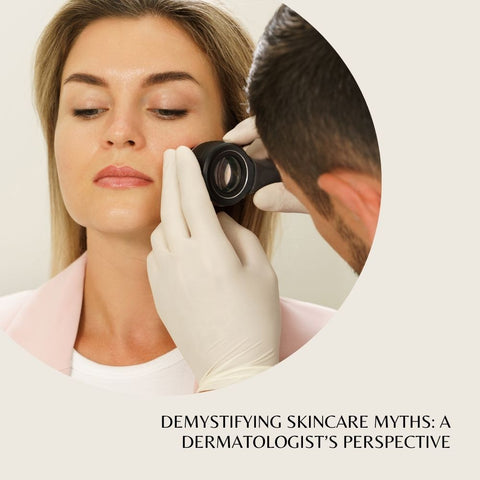
Here are some common myths that we frequently encounter in my practice, along with the truths behind them:
-
Myth: Expensive skincare products always perform better.
-
Truth: Price does not always correlate with effectiveness. While some high-end products may contain high-quality ingredients and advanced formulations, there are plenty of low-cost options that produce excellent results. Focus on ingredients rather than brand names or price tags when selecting skincare products.
-
Myth: Natural ingredients are invariably safe and effective.
-
Truth: While natural ingredients can benefit the skin, not all natural substances are appropriate for skincare. Some natural ingredients may cause irritation, allergies, or sensitivities in certain people. Furthermore, effectiveness can vary significantly depending on formulation, concentration, and stability. Always research ingredients and consult with a dermatologist before incorporating new products into your routine.
-
Myth: You should wash your face frequently to avoid acne.
-
Truth: Overwashing the face can deplete the skin's natural oils, resulting in dryness, irritation, and potentially worsening acne. Cleanse the skin gently, no more than twice a day, with a mild, non-comedogenic cleanser. Overly harsh or frequent washing can disrupt the skin's barrier function and worsen acne symptoms.
-
Myth: Sunscreen is only needed on sunny days.
-
Truth: UV radiation from the sun can pass through clouds and windows, reaching the skin even on cloudy or overcast days. Sunscreen should be worn every day, regardless of the weather, to protect the skin from harmful UV rays and avoid premature ageing, sunburn, and skin cancer. Look for broad-spectrum sunscreen with an SPF of 30 or higher and reapply every two hours when exposed to the sun.
-
Myth: You can use skincare products to shrink your pores.
-
Truth: Pore size is largely determined by genetics and cannot be permanently altered. Skincare products can temporarily reduce the appearance of enlarged pores by removing excess oil, debris, and dead skin cells, but they cannot physically shrink the pore size. Instead of attempting to change the size of your pores, focus on keeping them clean and clear with proper cleansing, exfoliation, and hydration.
-
Myth: More products equals better results.
-
Truth: A minimalist approach to skincare can often be more effective than using multiple products at once. Multiple products can overwhelm the skin's natural barrier, causing irritation, sensitivity, and breakouts. Prioritise quality over quantity, using a targeted selection of products to address your specific skincare concerns without overburdening the skin.
By debunking common skincare myths and providing evidence-based insights, we hope to empower people to make informed skincare decisions and achieve healthier, more radiant skin. Always consult a dermatologist for personalized recommendations and guidance based on your specific skin type and concerns.

